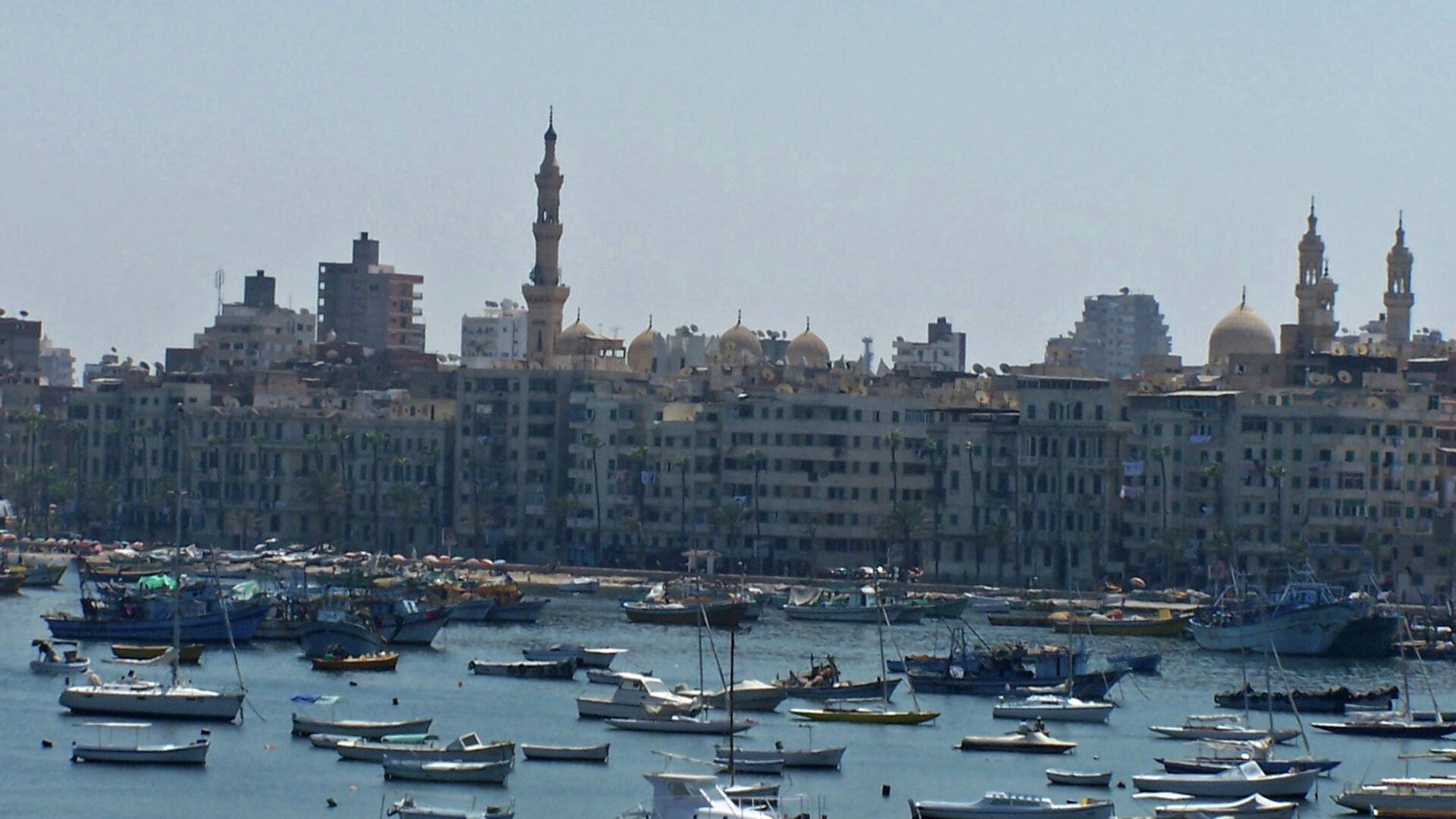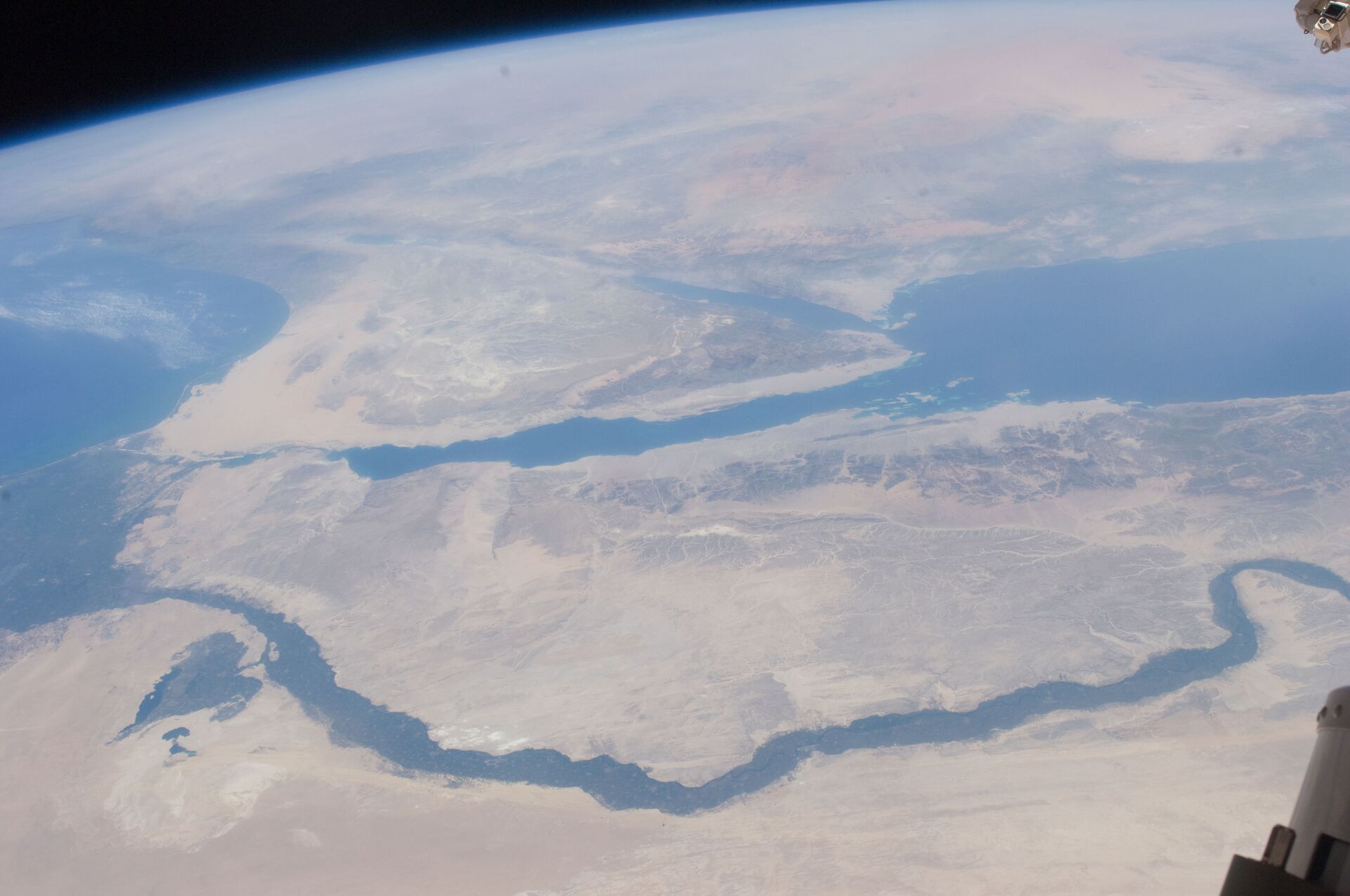Egypt’s Alexandria Likely to be Reclaimed by the Sea by 2100, Scientists Warn
19:30 GMT 03.11.2022 (Updated: 05:28 GMT 04.11.2022)

© Flickr / Sebastià Giralt
Subscribe
Egypt’s second-largest city and largest port was founded in Antiquity by Alexander the Great and was once the center of Mediterranean culture. However, thanks to climate change-induced sea level rise, the metropolis will likely be lost before the century is out.
A group of scientists have raised alarm at the increasing pace of sea level rise and its impact on the Nile Delta, a vast, densely populated region of Egypt that is home to the country’s second-largest city: Alexandria.
Within 80 years, the level of the Mediterranean Sea could rise by 1 meter, inundating low-lying coastal areas and shifting the coastline inland by several kilometers, according to a report by the Cyprus Institute's Climate and Atmosphere Research Center and the Max Planck Institute for Chemistry.
“This would imply severe challenges for coastal infrastructure and agriculture, and can lead to the salinization of coastal aquifers, including the densely populated and cultivated Nile Delta,'' said George Zittis, a climate researcher at the Cyprus Institute in Aglandjia, who co-authored the report.
The 1-meter sea level increase represents the worst-case scenario, but even the more likely situation, a 0.6-meter increase, would still have catastrophic consequences for the region. Indeed, the sea is already moving inland, with more than 3 kilometers of land having been lost since the 1960s.
The Egyptian government has embarked on numerous projects to slow down the loss of coastline, including planting new reed beds and mangrove thickets, as well as reinforcing seawalls and the shoreline with riprap and concrete breakwaters. However, as the global sea level continues to rise, such defensive elements can only do so much.
“If it gets higher, the trees will die,'' Sayed Abuel-Ezz, a mango farmer in the delta, told the Associated Press about the sea. He and many other farmers told the AP that salt penetration of the soil has already greatly impacted their crops.
The Nile Delta is one of the world’s largest river deltas, forming where the Nile fans out across a broad plain as it approaches the Mediterranean Sea. The fertile region is some 240 kilometers wide, spanning from Alexandria in the west to Port Said, the gateway to the Suez Canal, in the east, and almost reaches Cairo, 160 kilometers inland.
The region is home to 40% of Egypt’s 104 million people and is responsible for half of the country’s economic activity, including farms, fisheries, and the port facilities in Port Said, Damietta, and Alexandria, the lattermost of which is Egypt’s second-largest city.
Alexandria was founded by the Macedonian Greek conqueror Alexander the Great in 331 BCE, the first and greatest of many Alexandrias founded between Egypt and Uzbekistan during the course of his conquests. For centuries after, the city was a global center of learning, culture, art, and the seat of power of many Egyptian monarchies. Today, Alexandria is home to 5.5 million people, and along with nearby Al-Dukhaylah, handles half the country’s foreign trade.
Another danger Alexandria faces is that it is sinking by about 3 millimeters per year, making flooding easier, such as the highly destructive floods in 2015 and 2020. Numerous dams on the Nile, used to generate electricity, have stemmed the regular flow of silt downriver, which has affected both soil fertility and increased erosion.
Egypt’s Sharm el Sheikh, in the Sinai, is set to host COP27, the latest United Nations climate change conference, later this month.



